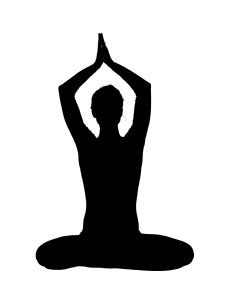 We all have mental health, just like we all have physical health. Both change throughout our lives. And, like our bodies, our minds can become unwell. Although you can’t readily “see” someone who suffers from a mental health illness, the effects are as real as a broken arm or someone suffering the after effects of a brain injury, like a stroke.
We all have mental health, just like we all have physical health. Both change throughout our lives. And, like our bodies, our minds can become unwell. Although you can’t readily “see” someone who suffers from a mental health illness, the effects are as real as a broken arm or someone suffering the after effects of a brain injury, like a stroke.
We know definitively that depression is an illness in the brain, and this is documented through extensive research. Essentially, what is known is that eventually the hippocampus in the brain shrinks in people who are clinically depressed, and the longer an individual suffers from depression, the greater the effect on brain function.
The hippocampus is responsible for forming new memories, and loss of volume in this area leads to loss of emotional and behavioural function. We need to understand that an individual’s whole sense of self depends on continuously understanding who she or he is in the world. His or her state of memory is not just about remembering a password, it is the whole concept that she or he hold of themselves.
It’s important to note however, that the effects of depression on the brain are reversible with the right treatment for the individual. With this in mind, early intervention is vitally important in treating depression since the hippocampus is one of the most important regenerative areas of the brain.
Getting treatment makes sense, right? It’s clearly really important to the individual on many levels, so why don’t people get treatment? I think we can all answer that one. Part may be a lack of knowledge about mental illness or understanding what is going on and why s/he are experiencing these symptoms.
However, a bigger factor is stigma. Many people with mental health illness experience stigma, which is the negative attitudes and behaviours others display around them. Stigma spreads misinformation, fear and perpetuates stereotypes. According to the Mental Health Commission of Canada, more than 60% of people with mental illness won’t seek the help they need and stigma is the main reason. People living with mental health disorders often say the stigma they encounter from family, friends, coworkers and peers is worse than the illness itself. Science doesn’t lie people, neither do MRI’s or neuroimaging. Depression is a physical and mental illness and treating it and people who suffer from it like it isn’t is unacceptable.
Mental health problems are actually more common than you think. Stats show that one in four of us will be affected by mental illness in any year and it is likely that one day you, one of your friends, colleagues or family members will experience a mental health problem. Yet mental illness is still surrounded by prejudice, ignorance and fear.
It’s time to start talking about mental health, break down the stigma associated with it and help people who are suffering but afraid to get help. Human Resources, in partnership with the Canadian Mental Health Association, have created a video on mental health and how to start the conversation, support your friends, coworkers and family. Please check it out, you just might help someone or be helped yourself one day.



 Spring is upon us. This means the snow has melted to reveal cigarette butts, and to unravel your allergies. It’s not all bad however, Spring means warmer weather and happier faces. Spring means enthusiastic cyclists, blooming flowers and flying kites. Also, get excited for PoutineFest, Tulip Festival and the Farmer’s Market!
Spring is upon us. This means the snow has melted to reveal cigarette butts, and to unravel your allergies. It’s not all bad however, Spring means warmer weather and happier faces. Spring means enthusiastic cyclists, blooming flowers and flying kites. Also, get excited for PoutineFest, Tulip Festival and the Farmer’s Market!
 Beginning this month we will be asking you to pick “One Thing”, just one, you can change today, to improve your overall health and wellness. It doesn’t have to be something huge or all-encompassing or overwhelming. Just one thing that you do, for yourself, that can help increase your overall wellbeing.
Beginning this month we will be asking you to pick “One Thing”, just one, you can change today, to improve your overall health and wellness. It doesn’t have to be something huge or all-encompassing or overwhelming. Just one thing that you do, for yourself, that can help increase your overall wellbeing.